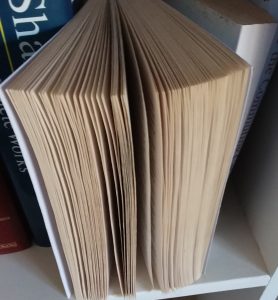Why do we love to read fiction?
I hope you have books on your Christmas list this year or receive a books from family and friends. Not only do we love reading especially fiction, it can be good for you.
According to you YouGov survey, nearly half the population (43%) stated they read once a week for pleasure.
According to Bea Carvalho, head of fiction at Waterstones speaking to Good Housekeeping “Storytelling is always going to be a fundamental part of our culture”. 
The Origins of Storytelling
Throughout history storytelling has played an important role. Whether the stories are oral or written, fact or fiction storytelling has played a vital role in informing others of life events and helping explain the world around us and this is still true today. We all like a bit of gossip, which is just another form of storytelling. Storytelling has also been a way of communicating a message, many Fairy stories written for children were designed as moral lessons to prevent children wandering off, talking to strangers or misbehaving!.
To understand and heal
Whatever your situation and if you are struggling with making sense of it, you may find a book that helps you to process and consolidate your own feelings.
Bridget Jones’s Diary by Helen Fielding – about a thirtysomething quirky singleton looking for love was hugely popular because it resonated with so many young thirty-something women on a quest to find ‘the one’, yet at the same time wanting to be seen as Independent. Books that resonate with us also give hope or redemption.
Books for difficult times
It is true that, in difficult times, we may turn to reading. One lady told me that before Covid she never read but during the pandemic in 2020 she read 50 books. Books to get us through difficult times is not new.
Germaine Leece in 2017 wrote ‘the understanding that literature can comfort, console and heal has been around since the second millennium BC’. Helen Mary Gaskell during the First World War wanted to ensure that wounded soldiers had access to books they loved. Her war library was fully operational by the end of 1914. For a wonderful story on this very topic, highlighting the power of books read The Paris Library by Janet Skeslien Charles. Set partly in the American Library in Paris just before the war breaks out and Montana in 1983, the story is about love, friendship, bravery and the choices we make when faced with adversity as well as the power of books.
To understand people or places we have never met?
Other perspectives
According to blog writer Monica M Clark this is a crucial role of fiction.
“Fiction readers not only experience the protagonist’s point of view, but his/her innermost thoughts. They spend hours with his perspective and learning about his background. They think and care about someone very different from themselves”.
In 2019 Bernadine Evaristo won the Booker Prize for fiction with Girl, Woman, Other which follows the lives, of loosely connecting characters who are mostly women, black and British and through the novel we can experience their lives probably very different from our own. It is also interesting to read from a literary point of view, it is written as almost conscious thoughts of the characters without any full stops.
Time Travel
Fiction also allows us, the readers, to experience new settings and places as well as time travel through history, not only for sights and sounds but smells, tastes and touches. In Victoria Hislop’s The Island, we are transported to the Island of Spinalonga off the coast of Crete, the Island is also Greece’s leprosy colony. It is a beautiful story about love, passion, tragedy and loss and understanding of a disease which tore families apart, and fortunately, rare and treatable today.
As well as time travelling backwards, novels can time travel us forward in time, to a future which is usually dystopian. If you fancy such novels try The Handmaid’s Tale by Margaret Attwood or ‘Never Let Me Go’ by Kazuo Ishiguro. Very interesting perspectives on what a futuristic world may look like and certainly makes you think about what changes may be necessary to save our planet.
Entertainment and to relieve stress?
We of course read because it helps us to relax and it is an enjoyable experience. We become transported into the story, engrossed that we don’t think about our worries or even notice what is happening in our immediate environment.
American journalist Tony Schwartz states that reading allows us a ‘pit stop’ in our lives. Furthermore, research from the University of Sussex has shown that reading is one of the most effective ways of reducing stress. According to the research, within just 6 minutes of silent reading, the heart rate of participants slowed and tension in their muscles eased up to 68%. Psychologists believe the effectiveness is because reading creates a distraction for the mind which eases the body’s stress, reinforcing the link between mind and body.
In the New Year, I will share some book reviews, fiction and non-fiction to help relieve stress, heart-warming stories and books to help improve mental wellbeing. Why not have a think about your favourite books. Why are they your favourite? Could you identify with the main protagonist? Did a book help you through a difficult time like the pandemic?
The end….
Whatever you choose to read, it has important benefits not only for our own mental health but also for society in empathising and understanding cultures and experiences very different from our own. In an article for Good Housekeeping, comedian Susan Calman stated how much she loved friend’s recommendations. Me too – you not only get some great books to add to your book Wish List, but also it gives you something to discuss once you have read it, next time you see your friend; like your own exclusive book club.

